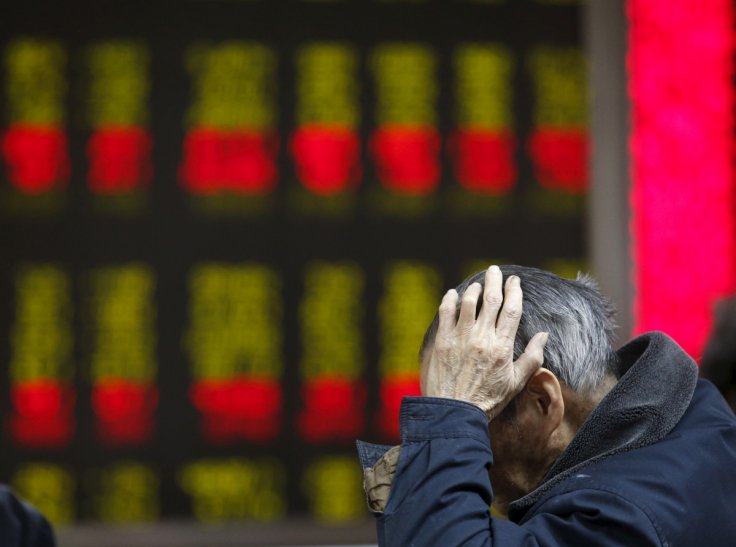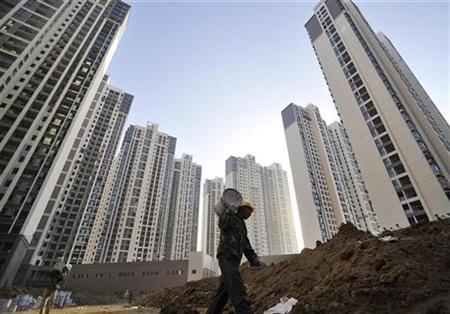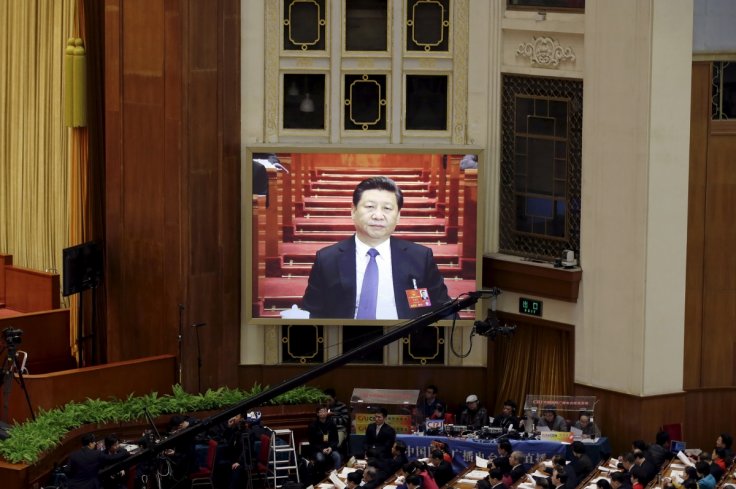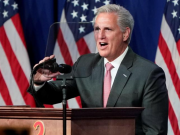Chinese stock markets crashed and the yuan tumbled after President Xi Jinping cemented his grip on power at the end of the 20th Congress of the Communist Party. The market reaction clearly showed that the limitless powers that Xi has given himself have spooked the business community and the investors.
Stocks, Yuan Crash
While the Chinese yuan's crash was the biggest since the days of the 2008 global financial crisis, the stock market indices fell as much as 5 percent. Offshore yuan weakened 0.7 percent to 7.2782 against the US dollar on Monday morning, the Hang Seng China Enterprises Index plummeted more than 5 percent hit the lowest level since 2008 great financial crisis. China's benchmark CSI 300 Index also dropped nearly 2 percent.

The broader Hang Seng index plunged a whopping 13 percent in Hong Kong on Monday as the markets factored in the reality that the top echelons of power in China do not have any reformists.
Alibaba, Tencent Bleed
Remarkably, the Chinese companies that saw most losses in the market included tech giants like Alibaba Group Holding Ltd., Tencent Holdings and Meituan. All these companies had been in the cross hairs of Xi in the last several years. There are increasing concerns among investors that with Xi in the helm for another five years, these companies will face more scrutiny and bear the brunt of state repression.
While a third term for Xi was factored in by the global markets, the way the president stacked the senior leadership team with his die-hard followers shocked the observers.
Unlimited powers to Xi will enable him to make policies that hurt businesses, some analysts said, while others said a highly centralized power centre will bode ill for the economy.
Markets' Concerns
"The market is concerned that with so many Xi supporters elected, Xi's unfettered ability to enact policies that are not market friendly is now cemented," Justin Tang, head of Asian research at United First Partners, said, according to Bloomberg News.

"The more centralized power becomes, the more the risk of overzealous policy implementation based on directives from the top .... This happened in some of the lockdowns in the second quarter," said Duncan Wrigley, chief China economist at Pantheon Macroeconomics Ltd, the agency added.
Five more years for Xi will see his policies become hardened, the market participants feel. Especially in question are the Covid Zero policy and the decision not to prop up the ailing property market with state stimulus.
Rise and Rise of Xi
Earlier, as Xi Jinping steamrollered negligible opposition within the Communist Party to get an unprecedented third term in power, he also stacked the all-powerful Politburo Standing Committee with his loyalists.

The party Congress adopted amendments to the constitution that bestowed the 'core' status to Xi, a move that officially makes him the guiding light for the party and the nation. The new powers of Xi place him on the same pedestal as Chairman Mao Zedong.
The new politburo standing committee comprises Shanghai Communist Party chief Li Qiang, who is widely expected to become the Prime Minister. It was widely speculated that current Prime Minister Li Keqiang would be removed at the party Congress as his views on reforms had diverged from Xi's.

The other members of the standing committee include are Zhao Leji, Wang Huning, Cai Qi, Ding Xuexiang and Li Xi. The seven-member Standing Committee is the country's top governing body. All the members of the standing committee have pledged total allegiance to Xi.









